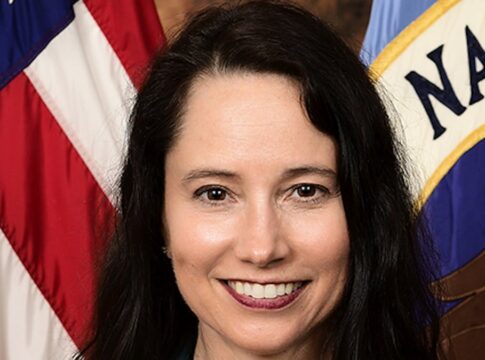Until last Thursday, the team behind the app Tea Dating Advice was having an extraordinary week. They claimed to have amassed more than 2 million new users, making Tea the most popular free app in Apple’s App Store, after it stirred discussion on TikTok and Reddit. Women were using Tea, whose tagline is “Helping women date safe,” in exactly the way they were supposed to: reviewing men they’d dated, giving them a “green flag” or “red flag” evaluation, seeking information on new prospects, running background checks to look for a criminal record or a sex-offender registration.
But by Thursday evening, angry men had begun to amass online. They gathered on the anonymous messaging board 4chan, clamoring for a “hack and leak” to publicly expose the app’s users. On Friday morning, someone on 4chan posted a link leading to more than 70,000 images of Tea’s users, including verification photos and pictures of government IDs, according to 404 Media, which first reported these events. Shortly afterward, someone created a map that claimed to link Tea users to locations and told anyone viewing it to “enjoy”; another person created a site for comparing and ranking the users’ physical appearances. Posters across social-media platforms had a field day sharing Tea users’ images, calling them “whales” and “ugly bitches,” saying that they deserved all of this. On Monday, 404 Media reported that a second data breach had revealed direct messages between users, including sensitive personal conversations, real names, social-media handles, and phone numbers. (A Tea representative told me that the company is investigating the issue and, having found that some messages were accessed in the breach, has taken their direct-messaging system offline. Tea has found no evidence of further exposures, she said, and is working to identify affected users and offer them free identity-protection services.)
The whole episode, from start to finish, was horribly bleak—and also bleakly illuminating. Tea is hardly a perfect app. As its name suggests, it allows not only serious warnings about men but also gossip about their supposed defects and romantic tendencies. When Tea users do make serious allegations of predatory behavior, those accusations go unconfirmed, a glaring failure of due process. But for all of the app’s flaws, the breaches have proved its users’ concerns valid: Women had good reasons for wanting something like Tea in the first place.
____
Tea’s emergence felt almost inevitable. Similar platforms have existed before: Consider Facebook groups such as “Are We Dating the Same Guy?” (which have led to multiple lawsuits from men who were the subject of discussion) or an app called Lulu (which took down its man-reviewing feature in 2016 after facing criticism). Those digital whisper networks didn’t exactly revolutionize dating safety. But by 2023, when Tea launched, American dating frustration had been mounting—perhaps especially for women. In 2019, Pew Research Center found that women were far more likely than men to say that dating had “gotten harder for most people in the last 10 years.” The app had a ready audience, particularly among the many women who yearn for the era before apps, when a person was more likely to meet a romantic prospect through family or friends. That nostalgia isn’t entirely misplaced: One real benefit of that courtship culture, researchers have told me, is that people are more likely to behave respectfully if they have mutual social connections who might hear how things go. Dating strangers, by contrast, involves a lack of accountability that may be more likely to lead to transgressions big and small, from ghosting and poor communication to sexual assault.
On top of all that, women are looking for romance at a time when the U.S. government has been stripping away their reproductive rights, making pregnancy more perilous, and dismantling protections against gender discrimination. They’re looking at a time of backlash to #MeToo and to the fact that women are relying less on men for financial security. They’re looking as young men are moving further to the right politically, and when only 43 percent of Gen Z men say they’d consider themselves feminists—compared with 61 percent of Gen Z women. And they’re looking as fear of sexual assault has grown. One doesn’t need to have experienced assault, or to believe that every man poses a threat, to know that something in the culture has curdled, that caution is warranted.
Tea arrived with good intentions. The actual product, unfortunately, isn’t so great: It denies men the chance to defend themselves and—in some cases, surely—infringes on their privacy, publicizing their worst moments even when they might not make the same mistakes in the future. I would argue that the app isn’t great for women, either. It’s a sad approximation of what I think many really want: not strangers trashing other strangers online, but a return to a time when romantic prospects existed within a familiar context, when dating didn’t feel quite so lonely.
What Tea has accomplished, though, is showing what women are up against. The men so hell-bent on revenge against Tea’s users are illustrating that hatred of women is alive and well. And the leaks demonstrated how insufficiently women are protected by the tech companies that shape their romantic lives. Tea’s privacy policy promised that selfies used for verification would be “deleted immediately” after authentication; the company then stored the photos in a way that left them so easy to access, 4chan users apparently didn’t even need to break into anything. Tea was founded by a software engineer who said his mother had experienced “terrifying” encounters with men who turned out to be using false identities on their dating profiles. What a terrible irony that after so many women, feeling unsafe, flocked to his app, it has now left thousands of them in potential danger.
The first breach was awful: humiliating for the women who had to see their images passed around, and grim given the number of men making fun of those images with such open, gleeful cruelty. But news of the second breach, which reportedly exposed a larger amount of data with more identifying information, left a pit in my stomach. In more than 1.1 million private messages, women had told one another about rapes, opened up about abortions, identified cheaters. (“I am his wife,” one user wrote after saying she saw her husband being discussed on the app.) Some shared their phone numbers because, I imagine, they had made connections—because they needed support. When women realized they couldn’t rely on the men in their life, they tried instead to rely on other women. In the end, misogyny got in the way of that too.




